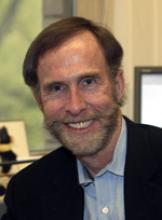What Is It
With the recent global economic crisis, many people wonder if our economic policies are built on sound principles or on dubious, unscientific claims. What kinds of assumptions does Economics make about markets and the behavior of producers and consumers? What kinds of assumptions does it make about the rationality of individuals? How, if at all, are those claims empirically verified? Or are they just speculative theories proven false by the current crisis? John and Ken pursue their rational self-interest with Alex Rosenberg from Duke University, author of Economics: Mathematical Politics or Science of Diminishing Returns?
Listening Notes
John opens the show by saying that it is obvious that economics is a science. Various individuals, such as the philosopher Thales, who noted supply and demand via calculating the demand for olive presses, have been calculating such economic transactions for at least the past 3,000 years. But it is not so simple, says Ken. There is a distinction between being an astute businessman, as was Thales, and being able to construct or participate in an actual science. John asks Ken what it takes for something to be a science. Ken recognizes the vastness of this question and says that a science is, roughly, how, through observation and experimentation, scientists seek to uncover laws that enable us to predict and explain things. John says that economics fits that bill well. The observations that economists have made are many and include, for example, the law of supply and demand. Economists, says John, have formulated additional laws and principles which help explain just how markets work. Ken says that given the many disagreements between economists, it does not seem as though there is much common ground between economists as there is in the majority of established sciences. For example, if economics really was a science, wouldn’t economists be able to express economic laws and principles via equations or experiments? John recognizes Ken’s point, but says that just because there are policy disagreements in economics, it does not mean that economics is automatically disqualified from the realm of the sciences. Ken says he would be more inclined to believe in economics as a science if economists were able to accurately predict upcoming economic events.
Ken and John are joined by guest Alex Rosenberg, Professor of Philosophy at Duke University and author of The Atheist’s Guide to Reality: Enjoying Life without Illusions and Economics—Mathematical Politics or Science of Diminishing Returns? John first asks Alex what drew him to study such a dismal topic as economics, given the adjective often accompanying the field. Alex, who majored in Physics, explains that at the end of his senior year of college he took a required economics course and realized that economics was the subject he should have studied in his undergraduate career. In graduate school, Alex took several economics courses and decided, as he explains, to apply the tools of philosophy of science to the agenda of understanding economics as a science. Ken asks Alex his thoughts on whether it really matters if economics is a science, and if so, then why. Alex says that it does matter. One would not build a bridge if unsure about the underlying physics of its construction. It is the same with economics – policies, says Alex, are designed to attain ends, and science is the tool for attaining these ends in a reliable manner.
Economics is dependent on the assumption that rational economic actors, be they consumers or corporations, are active. Ken asks Alex where economists get their ideas about these rational economic actors in the first place – do they make such assumptions from careful observation of actual human behavior or from a priori philosophizing? Alex provides historical context on this question and says that at its core, economics is the formalization of the common sense introspective understanding of why we do what we do. John asks Alex whether economists take the rational model of individualistic thought and apply it to corporations, which are also considered agents in the market. Alex says that economics is strongly committed to methodological individualism, the thesis that all large scale economic processes are the sum of individual rational agents, and so corporations are often personified as a rational person trying to maximize profit.
When Ken and John invite audience participation, questions such as whether economic theory is an idealization or a normative theory, whether the word cult is an incorrect alternative to science, and where the idea that people seek to maximize self-interest arose are discussed. Ken, John, and Alex also speak of the promise and potential of neuro-economics. The show concludes with John’s reflection on the current state of the economy as compared to the past.
- Roving Philosophical Reporter (Seek to 5:18): Philosophy Talk's Reporter Caitlin Esch talks to Dean Baker, a macroeconomist and co-director of the Center for Economic and Policy Research in Washington, D.C. Dean foresaw the 2008 financial crisis, publishing papers and creating an essay contest regarding the subject, and he and Caitlin speak of the skewed incentive structure that exists in the field of economics.
- 60-Second Philosopher (Seek to 49:10): Ian Shoales explores the idea that economics does not consider the human aspect of economics. He explains why he is weary of economic experts and why every boom contains the seed of its own bust.
